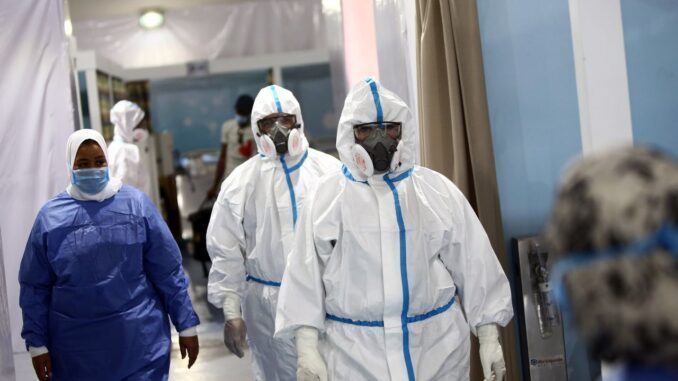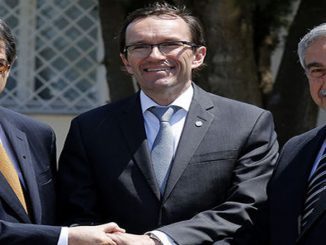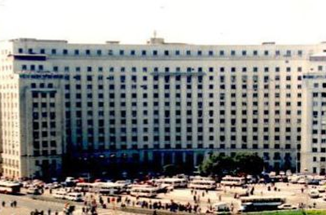
The American Centers for Disease Control and Prevention (CDC), a US a national public health institute and a federal agency under the Department of Health and Human Services, has recently warned American citizens against traveling to Egypt, stating that the COVID-19 level in Egypt is very high.
“Level 4: Very High Level of COVID-19 in Egypt; Travelers should avoid all travel to Egypt,” CDC notification stated, adding, “Travel may increase your chance of getting and spreading COVID-19.”
The daily numbers announced by the ministry of health is around 400 to 500 cases, where the numbers are highly questioned by many due to the spread of the virus in the region and amid low medical precaution measures taken by the public in Egypt.
During the early outbreak of COVID-19, numerous countries—including Canada, Taiwan, Lebanon, Canada, Algeria, Greece, the United States, France, and Kuwait—reported that tourists who had traveled to Egypt subsequently tested positive for coronavirus, Egyptian officials then have denied that Egypt has had any confirmed cases, relying on conspiracy theories to back false claims of a country without coronavirus.
Questioned numbers
Egypt’s health ministry announced the first case in the country at Cairo International Airport involving a Chinese national on 14 February.
In a report by Deutsche Welle, Cairo has severely underreported the number of positive cases in the country. In addition, authorities have arrested people circulating figures higher than the official tally.
The Director of the World Health Organization (WHO) Health Emergencies Program for the Eastern Mediterranean, Rick Brennan, also declared that the number of coronavirus cases recorded by Egypt’s Health Ministry does not reflect the actual figures for infections in the country.
During a press briefing this month, Brennan said that there has been an increase in the number of cases in Egypt, and the WHO is closely examining the reports with health officials to help guide the country. He added that the official number of infections is just an estimate, and therefore, in these contexts the WHO sees that these numbers do not reflect the real number of infections. In order to gain a more accurate and comprehensive picture, the WHO is looking at other indicators, including the number of deaths per day and hospital occupancy.
In early June 2020, Egypt’s higher education and scientific research minister said the country’s coronavirus infection numbers fall short of accuracy. The country’s real tally of infections is five times higher than data announced by the country’s Health Ministry, while the actual number of deaths is 10 times higher than official figures, local media quoted Khalid Atef Abdul Ghaffar as saying.
Egyptian authorities have been severely criticized for allowing Chinese tourists and investors entry in apparent disregard of coronavirus-related risks. More than 100 Chinese tourists arrived in Cairo International Airport on February 29.
The arrival of the Chinese nationals came as many Egyptians expressed concern about the effectiveness of Egypt’s quarantine measures and procedures to discover travelers infected with the virus.
Egyptian Health Minister Hala Zayed shocked the public in mid-February by claiming that the virus will not strike Egypt because “it lives in China, not in Egypt.” Zayed also claimed that the virus is not contagious and that she did not intend to ban Chinese visitors from entering the country, “because the WHO hasn’t recommended doing so.” On March 2, Sisi sent Health Minister Hala Zayed to China with a declared objective of delivering a message support to China, where the coronavirus had first emerged!
Unlike many countries including European ones, Egypt did not ban flights coming from Rome although Italy was considered a hot-spot for the COVID-19 coronavirus, with the highest number of cases in mainland Europe. Instead, the minister of health was sent on a visit to Italy. On April 5 to provide medical aid to the European country amid the novel coronavirus outbreak. The minister was criticized for appearing without a face mask, unlike the Italian Foreign Minister Luigi de Maio, who received her wearing one.
“… and everyone complains about the lack of equipment in the face of coronavirus,” tweeted TV presenter and journalist Osama Gaweesh. “The world is on alert and Egypt is looking for a show,” he added.
The visit was linked, by some, to strained ties between Italy and Egypt since the killing of Italian student Giulio Regeni, suspecting an attempt to improve relations.
Most recently many European countries has started banning flights Britain amid in an effort to keep out a highly infectious new strain of the coronavirus that is spreading rapidly in England. The Chairman of the EgyptAir Holding Company Rushdi Zakaria has announced that all flights between Egypt and the UK will continue until further notice, barring any sudden decisions from the government and Ministry of Health.
Egypt film festivals
There were rising concerns over a number of coronavirus cases believed to have originated at the El Gouna Film Festival that was opened on 23 and lasted for nine days until-31 October 2020 at the Red Sea resort town of Gouna.
“I’m seeing a growing number of people who attended the Gouna Film Festival are learning they got COVID-19,” warns a Facebook post circulating among those who attended the Oct. 23-31 event. “If you were there, please isolate and get tested. If you test positive, please let everyone you met know so they can isolate and get tested.”

At that time, social media in Egypt pointed to the rise in Covid-19 infections linked to the 4th El-Gouna Film Festival held on 23-30 October at the Red Sea resort town of Gouna. Fashion designer Reem El-Adl, artist Nashwa Mustafa, rapper Wegz, and actresses Zeinab Ghareeb, Sarah Abdel Rahman and Basma are among those who attended the festival and subsequently reported testing positive for the virus. Some artists reported about their cases on social media.
On her Facebook page, El-Adl who confirmed contracting Covid-19, writing: “Some friends tested positive and then they did a second one but tested negative. But I will isolate myself until I’m a million percent sure. We all must undergo the test as a precaution.” Basma also confirmed, on her Facebook page 5 November, that she tested positive.
Rapper Wegz posted on his Instagram a message warning those who attended the festival: “Hey everyone. I’ve just tested positive for corona. I’m in Gouna and was in contact with a lot of people, so please get tested if we’ve seen each other in the past two weeks. Stay safe.”
The light on coronavirus cases came after director Karim El-Adl posted on his expectation that the number of coronavirus patients from the artistic community will increase because of El-Gouna Film Festival and the many activities in which artists were participating.
Political commentator, Timothy Kaldas, posted on his Facebook page : “I’m seeing a growing number of people who attended the Gouna Film Festival learning they got Covid-19. If you were there, please isolate and get tested. If you test positive, please let everyone you met know so they can isolate and get tested.”
Later, nine Egyptian artists have recovered from the novel coronavirus as of Nov. 15 after having contracted it during the El-Gouna Film Festival, held in the city of el-Gouna on the Red Sea coast from Oct. 23-31.
Social media users accused the producers, Naguib and Samih Sawiris and other businesspeople, of risking a second wave of the virus.
In spite of the consequences of crowdedness in the El Gouna Film Festival, the 42nd Cairo International Film Festival was not suspended. Instead, it was opened on 2 December and continued for nine days ending on 10 December, where the opening ceremony was held inside the Egyptian Opera House.

Based partly on multiple confirmed COVID-19 cases in other countries being linked to travel in Egypt, infectious disease specialists from the University of Toronto, who studied the disparity between official and presumed infection rates, estimated the number of COVID-19 cases in Egypt to be between 6,270 and 45,070 presumed cases in March 2020, a study which was reported on by The Guardian and The New York Times. This projected figure was far higher than the official count of 126 at the time. Accordingly, a reporter for The Guardian had her accreditation revoked by the State Information Service over the perceived inaccurate information, while a reporter for The New York Times was warned by the SIS for similar reasons.
“The authorities need to deal with this issue with a higher degree of transparency,” said Ehab al-Taher, secretary-general of the Egyptian Medical Syndicate, the independent guild of the country’s medical doctors. “Denying the presence of the virus will cause it to spread like wildfire.”
However, a research paper was later published by Egyptian scientists, including Health Minister Hala Zaid, suggesting that some underestimation may have in fact taken place, and that the actual number of COVID-19 cases in Egypt as of 31 March 2020 could have been between 710 and 5,241 cases, potentially up to seven times higher than the recorded official number at the time. This was followed on 21 May 2020 by Khaled Abdel Ghaffar, the Minister of Higher Education, suggesting that the true number of COVID-19 cases at the time might have been at least 71,145.
Doctors caught for posting criticism of Gov’t online
Egyptian authorities have arrested at least nine doctors and other medical personnel who are speaking out about the deaths of frontline healthcare workers as the country wrestles with a surge in coronavirus cases and tries to reopen its struggling economy. Since last March, Egyptian security forces have detained the healthcare professionals for complaining about a lack of protective gear in hospitals; criticizing the government’s response to the virus; or reporting coronavirus cases without authorization, according to the country’s medical union and rights groups.
Egypt faces a growing crisis in its hospitals as underequipped medics grapple with an influx in coronavirus patients. At least 103 doctors have died from the coronavirus since the outbreak began and more than 3,000 have been infected, according to officials at the Egyptian Medical Syndicate.
The death toll among medics has resulted in a rare public confrontation between the country’s medical community and the Egyptian government over how the state is handling the virus. The union has accused the government of negligence by failing to provide protective gear and test and isolate hospital workers who have been exposed to the virus.
“Anger is growing among doctors and the Ministry of Health is required to protect them,” said Mona Mina, a member of the Medical Syndicate board, in a public Facebook post in May. “You can’t put soldiers on the battlefield without weapons.”
Egypt joins a growing list of countries that have detained doctors for speaking out about their government’s handling of the coronavirus, starting with China when it detained a doctor from Wuhan city who tried to warn others about the initial spread of the virus. Russia has also detained doctors who have been critical of their government’s response to the disease.
Earlier this year, Egypt’s government rejected calls from the Medical Syndicate to impose a total lockdown to stop the virus’s spread, arguing the country couldn’t afford the economic costs of a shutdown. The government instead adopted partial measures like a nighttime curfew, a halt to international flights, and the closure of schools and other gathering places.
“We thought the pandemic would be a time to recognize the work of doctors, but four months into it all I’m left with is fear, depression and silence,” said a pediatrician, aged 40, working in a hospital designated for coronavirus patients in Egypt’s Minufiya province.
The sparring between the government and the doctors reached a crisis point on June 23 when Prime Minister Mostafa Madbouly said that doctor absenteeism contributed to a recent surge in coronavirus deaths.
When doctors decried the statement in posts on social media, the Egyptian security forces clamped down. Security officers arrested Mohamed Al-Fawal, a member of the board of the Medical Syndicate who pushed back on the prime minister’s statement online, during a raid on his home on June 25, according to syndicate officials. On June 27, security officers shut down a news conference organized by the syndicate in Cairo.
Prosecutors have charged the detained doctors and nurses with a range of charges including “spreading false news” and membership in a terrorist group, accusations the medics reject. The same charges are frequently leveled against activists and others detained in the ongoing government crackdown.
“The authorities are saying you have to sacrifice but you have to shut up about it,” said Hussein Baoumi, an Egypt researcher with Amnesty International who has researched recent arrests of medics in the country. “You have to take all the abuse.”
Prisoners in danger
On 22 July 2020, a report, based on the letters covertly obtained from prisons and interviews with inmates, stated that COVID-19 has infected multiple people inside several Egyptian prisons.
In mid-June, a message leaked from the detainees in the infamous high-security Torah Prison-992, known as the Al-Aqrab “Scorpion” Prison revealed that there were about 300 coronavirus infections among inmates amid complete negligence from the prison administration.
The leaked message was titled “Appeal to the Whole World in General and to Our Great Egyptian People in Particular” complained of the Egyptian authorities’ negligence of the medical conditions of inmates in the high-security Scorpion Prison amid spread of COVID-19 among them.
“We send you our message, which may be the last, to tell you about spread of the coronavirus pandemic in most prison wards. The number of cases with symptoms of COVID-19 infection has increased to more than 300 detainees, without any action taken by the prison administration!”, the statement said, adding that the infected cases were not isolated or provided with appropriate medical care; and none of the patients were transferred to hospitals and intensive care rooms.”
The message said the prison administration did not respond to calls detainees to rescue the COVID-19 infected cases. The detainees wondered about the expected role of the public prosecutors overseeing the prisons, and the “conscience” of the prison administration which is supposed to preserve their lives.
The political detainees also said in their leaked message: “We are not criminals but victims of trumped-up charges as a result of a political dispute with the existing regime,” adding “While there are no procedures to treat infected cases or even to prevent the spread of the virus among detainees, on the contrary, there is an extremely secretive state is imposed the reality of medical conditions inside the prison!!”
The political detainees also said: “We hold everyone responsible for any deaths that may occur during the coming hours, and we demand an immediate transfer of the COVID-19 infected cases to specialized hospitals and isolation of other detainees that have been in contact with them,” adding, “We also demand the immediate release of all detainees in Egyptian prisons because the situation is about to completely get out of control, in the light of preventing visits and exercise, malnutrition, poor ventilation and spread of insects in wards.”
At the end of their message, the Scorpion Prison detainees said, “We reaffirm that we are innocent, not murderers, nor criminals; and that inmates include among them scientists, doctors, engineers, and teachers from all of the Egyptian spectrum.”
Inmates die of COVID-19
In a similar context, a popular campaign to support detainees and the enforced disappeared in Egypt, called “ Hakkuhum” (Their Right), said that an Egyptian detainee named Hamdi Abdel-Al Rayyan (60 years) died in the prison of the security forces camp in the Tenth of Ramadan City in Sharqia Governorate, north of Cairo.
The campaign confirmed that Abdel-Al died due to a medical negligence after contracting COVID-19 symptoms, adding: “Despite of COVID-19 symptoms that appeared on him, the prison administration left him suffering and did not transfer him to hospital.”
The Hakkuhum campaign also pointed to the death of another detainee, Yasser Salama Mohamed Abul-Ela, has been on remand under case No. 9365 of 2019, in Tanta Prison, north of Cairo, after he contracted coronavirus.
In another context, the campaign revealed that “the Ministry of the Interior transferred all political detainees from the quarantine of Al-Mahalla General Hospital to Tanta prison, which is crowded with political and criminal detainees, despite their incomplete recovery from infection with coronavirus.”



